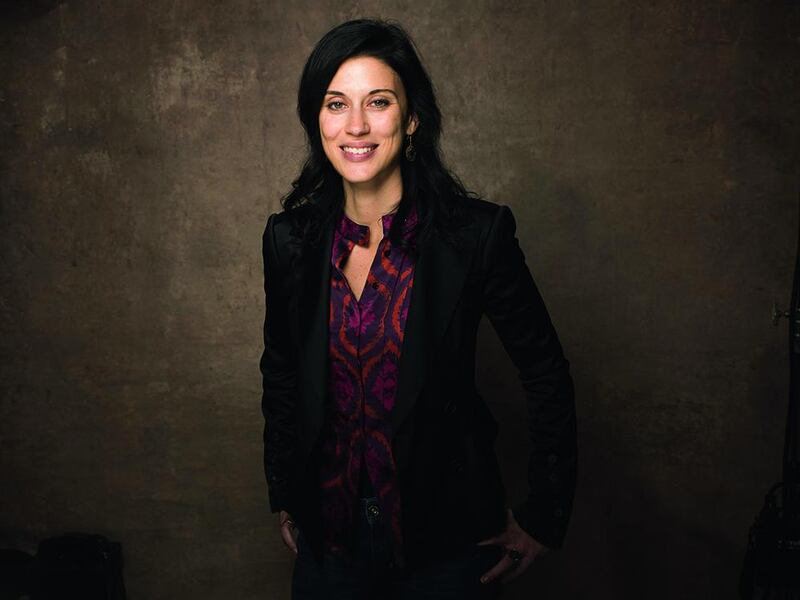The film May in the Summer, which had its debut last Saturday at the Dubai International Film Festival, was a bold step for the Palestinian-American Cherien Dabis, who not only wrote the script but also ended up producing, directing and making her acting debut as the leading lady.
Dabis hadn’t written the story with the intention of playing the leading role herself and searched for the right actress for a year before eventually resolving to go in front of the camera as well as behind it. “I felt vulnerable, and had to deal with my natural insecurities,” she admits. “But days when it was going well were very fulfilling.”
The film sheds a light on what it’s like to grow up as an expat in a more liberal culture, then to return to your conservative family roots as an adult and the conflicting cultural identities that arise. In the case of Dabis’s character, May, she comes back with her sisters from America to the Jordanian home of her devout Christian mother, played by Hiam Abbass. May intends to marry her Muslim boyfriend, Ziad, much to her mother’s disapproval, but starts getting cold feet as the big day approaches.
Dabis worked with Abbass on her first feature film, Amreeka, which, like May in the Summer, is also about American/Arab culture clashes, but from the perspectives of Arab expats living in America. She says: “I knew immediately I wanted Abbas to play the part, because I always saw her in more serious roles and wanted her playful side to come out for a change.”
Dabis also chose the Hollywood veteran Bill Pullman in the role of May’s estranged American father, Edward, in part because she wanted to pull in a big name to make the project more commercially viable.
Dabis has been criticised by some audience members for not showing Jordan in a more positive light, but she’s keen to point out that she felt it was a realistic portrayal of Amman, the city where she spent every summer as a child. “I am showing Jordanian society through the lens of an American expat. Every time I came back, I would see Amman become more and more Americanised.”
As a Palestinian, Dabis says that she is always asked what she thinks about the conflicts in the Middle East. “But I wanted to make a film that’s not politicised. My experience of Jordan is a cultural experience of family and great food, and that’s an experience shared by Christians and Muslims alike. There’s very rarely a movie made that is set in Jordan and I think it will go down well there.”
Dabis is currently working on three projects right now. “I am writing an LA-based, existential love story and comedy about death,” she says. “The other two projects I am working on both take place in the West Bank – a comedy, and a drama.”
[ weekend@thenational.ae ]
Follow us @LifeNationalUAE
Follow us on Facebook for discussions, entertainment, reviews, wellness and news.





